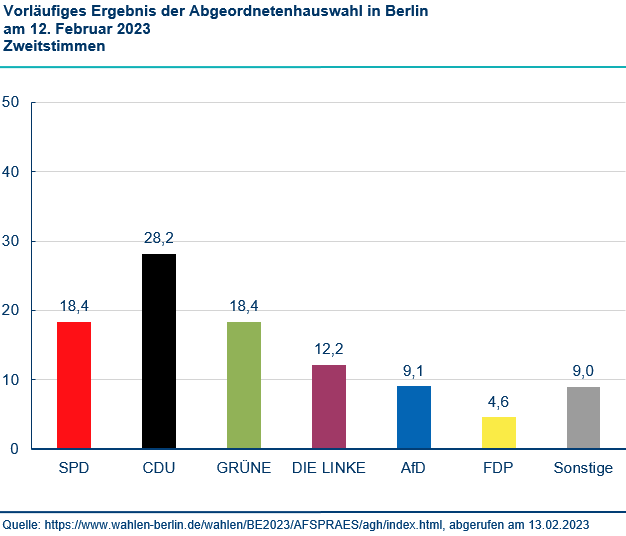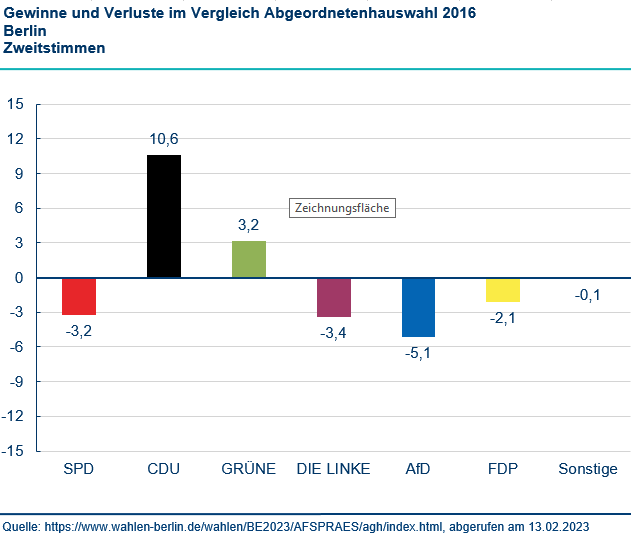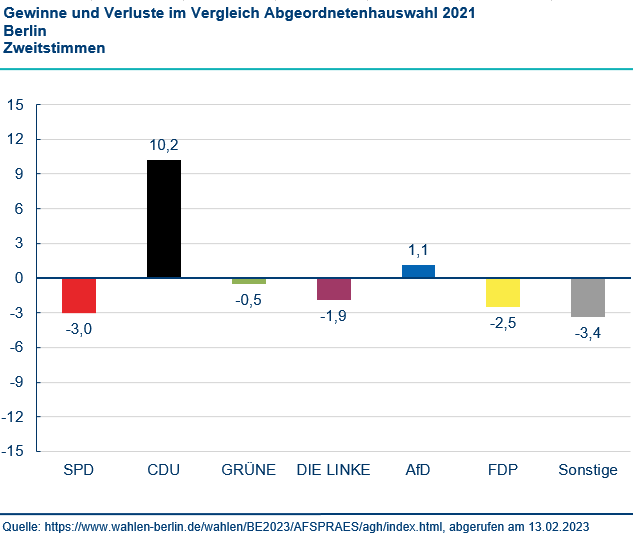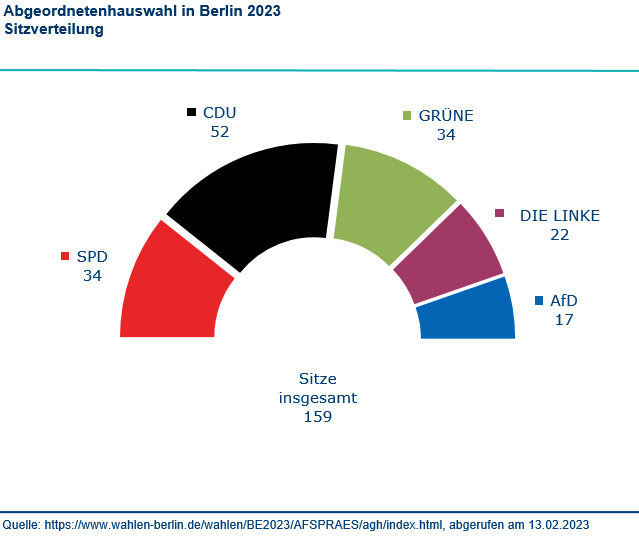For the first time in the history of the Federal Republic of Germany, an election had to be repeated. As it is not a new election, some special features apply. For example, the same candidates had to run as in the original 2021 election.
The election to the House of Representatives in Berlin is characterized by a particularly high degree of dissatisfaction at all levels. Compared to all other federal states, Berlin brings up the rear. 76 percent of those eligible to vote believe that Berlin is poorly prepared for the future. In no other federal state was there a similarly high level of pessimism before the state elections of the last few years.
The CDU is able to profit from this dissatisfaction and, with 28.2 percent, becomes the strongest party by a clear margin. This is reflected in the growing competence of the party and the reputation of the top candidate, Kai Wegner.
The SPD cannot benefit from the advantage of incumbency. For the third time in a row, it has achieved the worst election result in its history in Berlin. Despite the low reputation of their candidate, the Greens can keep the top result of the prior election.
Topics
About this series
The publications of the Election and Social Research Monitor are part of our Monitor publication series. The Monitor series deals with one main topic at a time from the perspective of KAS experts and places it in the political and social context on the basis of a few key points.
Break-up of the traffic light coalition without consequences for political opinions
Election analysis of the parliamentary elections in Hamburg on 2 March 2025
Bundestag election 2025: France hopes for policy change in Germany
Analysis of the Bundestag election in Germany on 23 February 2025
No Clear Winner in Ecuador's Elections








